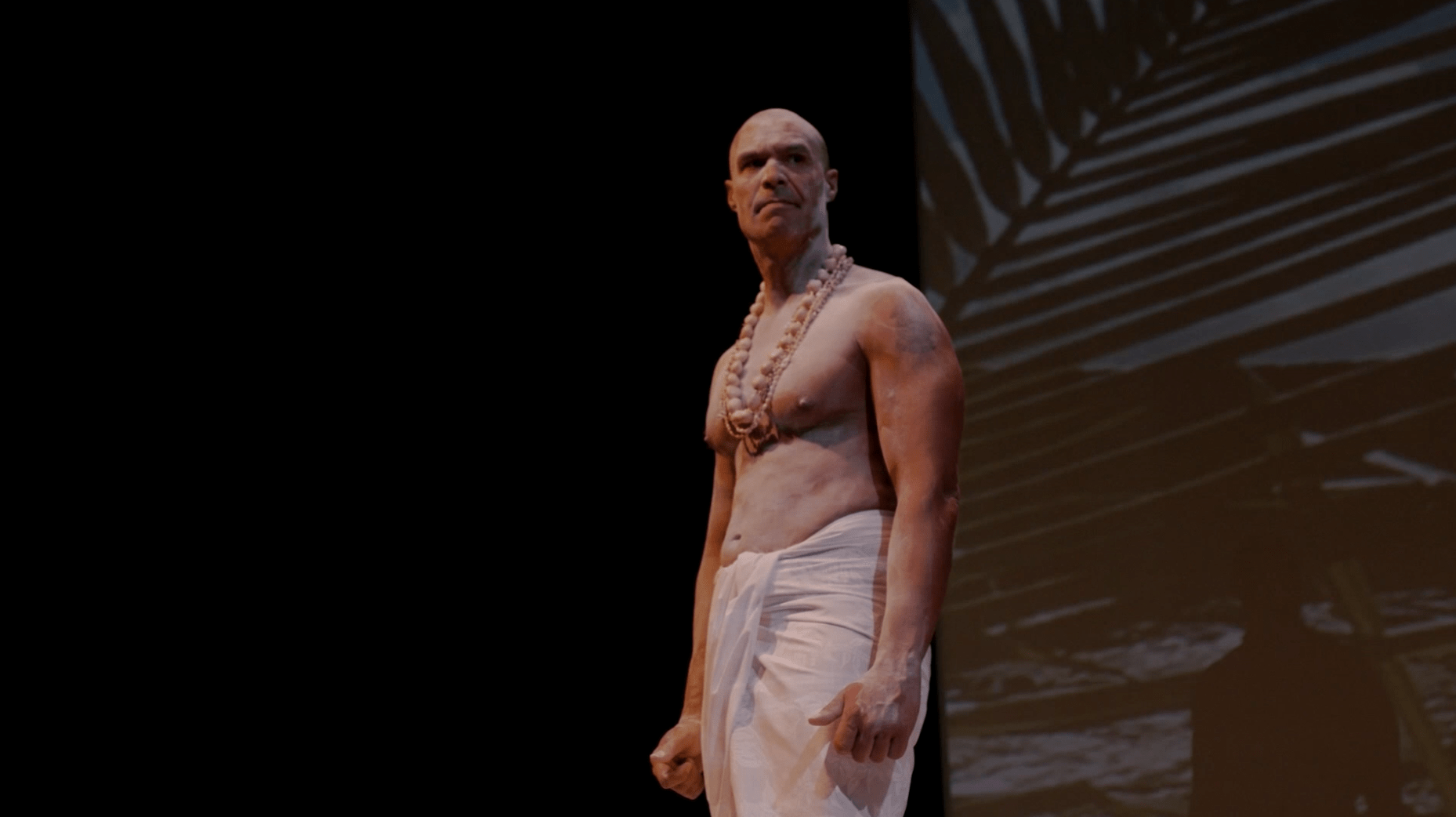
When the time arrived to shoot the ending of the play, we began to ask ourselves what would the spirit of Moore want to say to the audience at his own funeral? and what would his Auntie Rosie have to say to the officers sent to deliver the official condolences of the United States government and to present her with the American flag. There is a passage in Agamemnon that made me want to become a playwright in the first place. It is so brief yet so full of images and meaning that sum up the human cost of war in seven graceful lines. It was a tall last-minute order and Auntie Pua Johnson’s daughter, Malu Debus rose to the challenge and translated the passage into ʻōlelo Hawaiʻi with stunning beauty:
The god of war, money changer of dead bodies,
held the balance of his spear in the fighting,
and from the corpse-fires at Ilium
sent their dearest the dust
heavy and bitter with tears shed
packing smooth the urns with
ashes that once were men
Ke akua kauā, ka mea loli kālā o nā kino kupapaʻu
i paʻa lima i kāna ihe i ke kūpāpā
a mai ia ahi kino wailua ma Ilium
i hoʻouna i nei wahi i ka lehu
kaumaha a ʻawaʻawa i nā waimaka heleleʻi iho nei
hoʻopapa palaha i nā ipu me nā
lehu i ola mua me kēlā o kekahi kāne